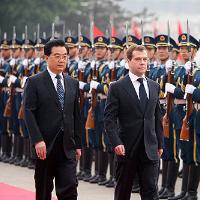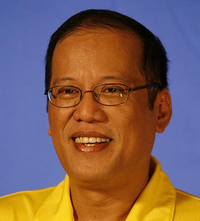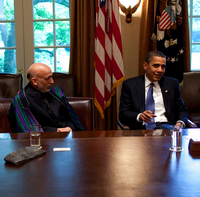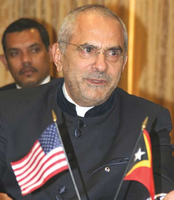A 2008 visa-free travel agreement between Russia and Brazil came into effect earlier this month, spurring tourism and closer ties between the two BRIC countries. In an e-mail interview, Oliver Stuenkel, a fellow with the Global Public Policy Institute, discusses the potential for commercial and political cooperation among BRIC member states. WPR: What is the current state of trade and visa restrictions between BRIC countries? Oliver Stuenkel: Since June 2010, Brazilian and Russian tourists do not need visas to pass or stay on the countries’ territories up to 90 days within each six-month-period from the first entry. This does not […]
Asia-Pacific Archive
Free Newsletter

Since late last year, members of the U.S. Congress have introduced no less than 34 different bills dealing with information security and Internet policy. Many of these bills are well-meaning, such as the House resolution calling upon Vietnam to “release imprisoned bloggers and respect Internet freedom” — even if the bill applies no penalties and, more importantly, appropriates no money. But the more significant “cyber” bills are the ones dealing with the security of the Internet. Since April 1, 2008, when Sens. Jay Rockefeller and Olympia Snowe introduced a particularly mammoth piece of cyber legislation, Congress has worked diligently in […]

The first official visit of Russian President Dmitry Medvedev to Washington last week offers a convenient opportunity to assess the current Russian-U.S. relationship. Since assuming office, one of the priorities of U.S. President Barack Obama and his foreign policy team has been to improve ties with Russia and other foreign governments that had become alienated from the United States. Relations between Washington and Moscow became especially strained in 2007 and 2008 following the acute confrontations that arose over the planned U.S. missile defense deployments in Poland and the Czech Republic, Russia’s August 2008 War with Georgia, and other issues. Despite […]

Perhaps the most surprising feature of the protracted crisis in Kyrgyzstan is what has not happened: Neither of Eurasia’s two preeminent regional security institutions, the Collective Security Treaty Organization (CSTO) and the Shanghai Cooperation Organization (SCO), have coordinated a military intervention in that country. The mass protests, deaths, and refugee crisis involving perhaps 1 million people has represented one of the most acute challenges to Eurasian stability in the history of either organization, both of which were founded almost a decade ago. In mid-June 2010, the Kyrgyz interim authorities even directly appealed for Russian military intervention on their behalf, but […]
South Korea experienced its second space launch failure earlier this month when a rocket exploded shortly after lifting off. In an e-mail interview, Center for a New American Security Fellow Abe Denmark discusses developments and setbacks in South Korea’s space program. WPR: What is the current state of South Korea’s space program? Abe Denmark: To date, the ROK’s satellite development program has been rather successful. Its National Space Program, most recently updated in 2005, calls for an ambitious program including the development of 13 satellites by 2010 and the ability to lift a 1.5 ton satellite into low-earth orbit (LEO) […]

China’s spreading labor unrest is rightfully portrayed in the Western press as an immense challenge to that country’s status as the “world’s factory floor.” But to Beijing’s bosses, it’s likewise a tool for addressing rising income inequality, which is why the Communist Party has remained most reticent to address it head on. Such a hands-off approach carries additional dangers, however, the most prominent being that, once emerging labor activists get a taste for pressing their collective demands, China’s political leaders could find themselves riding a Solidarnosc-like trade-union tiger that’s not easily tamed. China has long suffered isolated sparks of labor […]

The expectations of a nation will weigh heavily on Benigno “Noynoy” Aquino’s shoulders as he is sworn in as the Philippines’ 15th president on June 30. Aquino was elected with a convincing 42 percent of the vote in the May 30 election, the biggest electoral mandate in the country’s history. The question he faces now is, Can he deliver? Aquino seems to be doing most things right, but doubts remain as to whether he will be willing or able to push through the reforms the country needs. In a country renowned for its scandals, the 51-year-old bachelor is seen as […]
I had the pleasure of participating on France 24’s discussion panel, The World This Week, on Friday to recap the stories of the week: the G-20 summit, the McChrystal firing, the elections in Guinea, and the politicization of soccer. The other guests were Matthew Saltmarsh of the IHT, Célestine Bohlen, and Michael Kirtley. Part one can be found here. Part two can be found here. This was one of the rare times I’ve participated on this program where, upon leaving the set, I wasn’t immediately struck by everything I should have said, or how I might have expressed what I […]

Watching a president dismiss a senior general inevitably calls to mind Abraham Lincoln, who during the Civil War sacked generals left and right until he found one who served his purposes, and Harry Truman, who famously fired Gen. Douglas Macarthur during the Korean War. Unlike his predecessors, who removed generals either for their performance or due to disagreements over policy and strategy, President Barack Obama let Gen. Stanley McChrystal go because McChrystal had permitted a command environment that led some of his staff to crudely dismiss the president’s advisers. As if to underscore the continuity in policy and strategy, Obama […]
I’ve consciously avoided commenting on the broader subject of Afghanistan strategy over the past six months for three reasons. First, I agreed with the Obama administration’s December 2009 strategy review. Second, even if I didn’t, it seems counterproductive to relitigate the decision at the appearance of every news item that suggests things might not be going as planned. Third, any strategy takes time to assess, and will often defy momentary appearances. So yes, Marjah was a disappointment, the Kandahar “offensive” has anti-climaxed before it even began, and it seems that the insurgency has made inroads into Afghanistan’s northern, non-Pashtun provinces. […]

Are the deck chairs being reshuffled on the Titanic that is the Afghan war? First, Afghan President Hamid Karzai forced the resignations of his interior minister, Hanif Atmar, and the head of his intelligence services, Amrullah Saleh. Next, the U.K. special envoy to Afghanistan and Pakistan, Sherard Cowper-Coles, went on indefinite leave, turning over his post to his deputy. Now, in the aftermath of the infamous Rolling Stone profile, U.S. President Barack Obama has removed Gen. Stanley McChrystal as commander of U.S. and coalition forces in Afghanistan, replacing him with Gen. David Petraeus. What is interesting to note, of course, […]
Apparently I wasn’t the only person who, in watching the North Korean soccer team’s World Cup matches, flinched every time one of their players screwed up, wondering what awaited them when they returned home. It turns out I should have been more concerned with the fate of the French national team, whose World Cup implosion has triggered the kind of absolute unity of opinion one rarely encounters here. But the popular outrage has become a political pile-on, with Thierry Henry scheduled to consult with President Nicolas Sarkozy at Elysée Palace today, and an Estates General of the country’s soccer federation […]
On any number of levels, whether interpersonal or interagency, the necessary conclusion to be drawn from the McChrystal episode is that national security in an age of full-spectrum stabilization operations is “bigger than both of us.” Clearly, Gen. Stanley McChrystal failed to internalize the primacy of civil-military unity of effort, no matter how often or how well he tried to sell the merits of population-centric counterinsurgency to his own troops and outside observers. Just as clearly, Gen. David Petraeus wrote the book on that unity of effort. Also just as clearly, McChrystal was forced to work with, and Petraeus has […]
Turkey’s civil nuclear program has recently gained momentum with a signed deal with Russia to build the country’s first nuclear power plant and talks of a possible $20 billion contract with South Korea for the construction of up to four nuclear energy reactors. In an e-mail interview, Henri Barkey, professor at Lehigh University and visiting scholar at the Carnegie Endowment for International Peace, discusses Turkey’s nuclear ambitions. WPR: What is driving Turkey’s renewed interest in nuclear energy? Henri Barkey: There are three reasons. First, the Iran debate has highlighted how far behind Turkey is on nuclear energy, as there are […]
I’m not going to spend too much time piling on to the McChrystal story, which one way or another will be resolved in the next few days. I do want to address one recurring theme of the commentary, though, which is this idea that Gen. Stanley McChrystal, despite having royally blundered regarding the Rolling Stone profile, really “gets” COIN and is the best man for the job in Afghanistan. The problem is that when you go through the Army’s vaunted counterinsurgency field manual (.pdf), McChrystal, as revealed in the profile, is guilty of a failure in leadership on the most […]

On Feb. 11, 2008, gunfire erupted across Dili, the capital of East Timor, as rebels under disgruntled former army officer Alfredo Reinado unleashed separate attacks against the country’s president and prime minister. President Jose Ramos-Horta, who a year earlier had won the country’s first presidential election since gaining independence in 2002, was shot and wounded. Prime Minister Xanana Gusmao escaped injury. Reinado and another rebel died when government guards fired back on the attackers. The government of East Timor, also known as Timor Leste, declared a state of emergency after the attack. Two years later, it’s clear that the assassination […]
Last week, Chinese Premier Wen Jiabao and Japanese Prime Minister Naoto Kan held their first conversation on a newly installed prime-ministerial hotline intended to diffuse tensions between the two countries. In an e-mail interview, Haraldur Þór Egilsson, Professor at the University of Akureyri and author of “The Origins, Use and Development of Hot Line Diplomacy” (.pdf), explains the history and current use of diplomatic hotlines. WPR: When were diplomatic hotlines first introduced, and how has their use expanded and evolved? Haraldur Þór Egilsson: The need for reliable and swift communications between governments has always been essential. Such a need was […]
